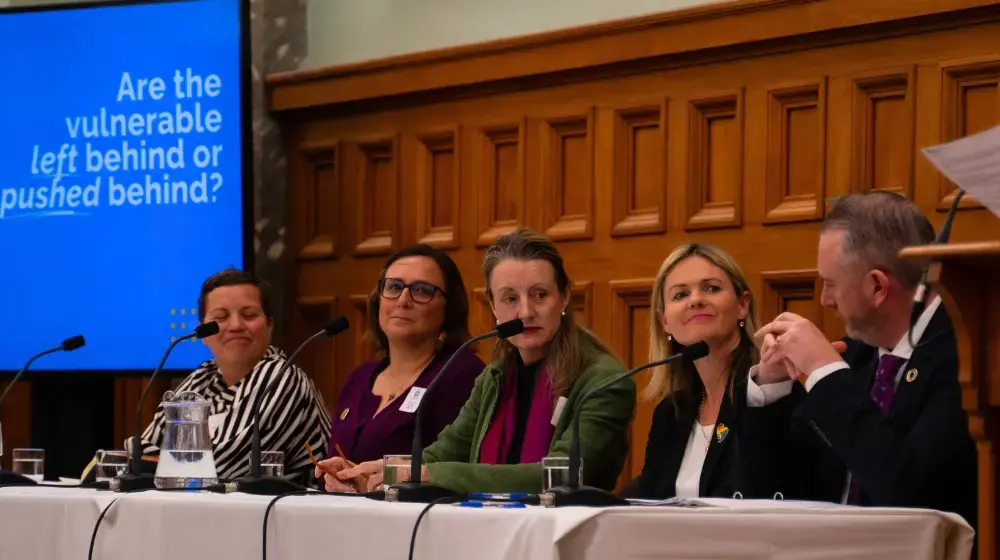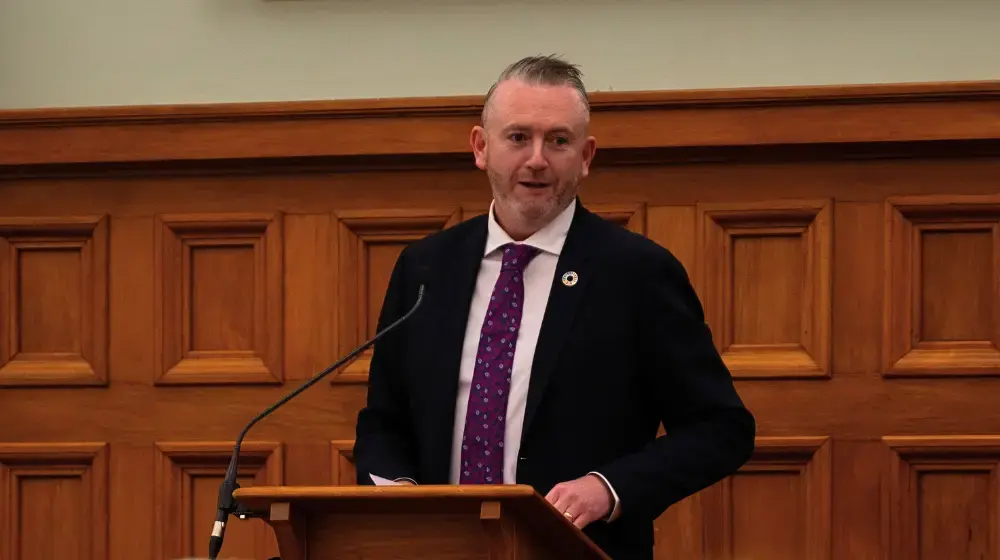The United Nations in the Philippines issued today the following statement .
More than 40 years ago, during the International Year for Human Rights, the Philippines joined the global community in proclaiming that individuals have a basic human right to determine freely and responsibly the number and spacing of their children.
Since then, the Philippines has ratified international conventions that recognize these rights, such as the International Covenant on Economic, Social and Cultural Rights, the Convention on the Elimination of all Forms of Discrimination Against Women (CEDAW), and the Convention on the Rights of the Child (CRC). The Philippines also became a signatory to the International Conference on Population and Development (ICPD) and the Beijing Declaration and Platform of Action, among others.
In 2000, along with 191 other UN member states, the Philippines committed to fully support the Millennium Development Goals (MDGs) when it signed the Millennium Declaration. MDG 5, which aims to reduce maternal death and provide universal access to reproductive health, is, however, the goal that is least likely to be achieved by the Philippines by 2015.
In the recent Family Health Survey (FHS), which was conducted in August-September 2011 with a recall period of six years for the data, it was estimated that for every 100,000 live births, there are 221 women dying due to complications of pregnancy and childbirth. This was a 36% increase from the 2006 Family Planning Survey data, which showed 162 estimated deaths per 100,000 live births. The FHS also estimated that, across all regions in the Philippines, the number of girls 15-19 years old who have delivered live births was 54 per 1,000 live births from 39 in 2006. For the 20-24 age group, the increase was to 159 per 1,000 live births from 149 in the 2006 survey.
Having extensively studied the provisions of the Responsible Parenthood, Reproductive Health and Population and Development Act bill, the United Nations in the Philippines views that the proposed law will fundamentally enable the government to meet its commitments to its citizens. It will also aid President Benigno Aquino III to deliver on his obligations as articulated in his Social Contract with the Filipino people.
As in many other countries where similar policies have been introduced, enacting a law that would address the reproductive health needs of the Filipino people would, over time, vastly improve health and quality of life and support development through:
- Giving couples information about and access to voluntary family planning methods
- Helping couples space pregnancies more effectively so as to reduce the risk of premature birth and low birth weight
- Making it less likely that mothers and infants will die during pregnancy, childbirth or soon after delivery
- Reducing the increasingly worrisome spread of HIV/AIDS, especially among young people
- Promoting breastfeeding
- Preventing teenage pregnancy by educating schoolchildren in an age-appropriate manner about normal human development, including reproductive health
- Allowing poor women to exercise their right to have the number of children that they want
Crucially, by preventing unintended pregnancies, a reproductive health law would help prevent recourse to life-threatening abortions.
The current high economic growth of more than 5% per year promises to lift millions of Filipinos out of poverty. But hopes of future prosperity could turn to dust if the country is not able to deal with the population growth by giving men and women access to the information and means to freely and responsibly exercise their human right to have just the number of children they want. If current trends continue, as the country grows richer, the number of people living in poverty will increase. At present, about 20 million Filipinos live in slum conditions. Urban population is growing at a rate of 60%, and it is estimated that by 2030, 75% of the Philippine population will be living in urban areas. While cities may look better off on the average, deeper in-city analysis exposes the urban poor to be among the most vulnerable to natural disasters and economic shocks.
As important as it is to point out what the bill addresses is to clarify the misinformation about it. The United Nations is confident that enacting the bill would not lead to the imposition of coercive measures such as a two-child policy. The United Nations has long resolved that given correct and appropriate information on family planning, individuals and couples will be able to exercise their exclusive right to determine their family size. The United Nations also believes that apprehensions such as exposure of people to risks of contraceptive use, encouragement of sexual promiscuity and legalization of abortion have no basis.
Instituting a reproductive health policy is consistent with the government’s duty under the Constitution “to protect and promote the right to health of the people and instill health consciousness among them.” In its working group session last May, the Universal Periodic Review (UPR), which examines the human rights performance of all 193 UN member states, noted the lack of access to reproductive health services, especially among the poor, in the Philippines. The working group recommended that the country adopt a national reproductive health policy and “intensify efforts to meet the MDG5 on maternal mortality, including ensuring universal access to sexual and reproductive health and rights.” The country’s human rights performance will once again be assessed at the UPR plenary session at the Human Rights Council in September.
The United Nations is mandated to serve the people of the Philippines. It takes seriously its mandate to work with the government and all other stakeholders for the achievement of the Millennium Development Goals and the advancement of public health.
Reproductive health is not about population numbers. It is about ensuring a life of health and dignity. Issues around the reproductive health bill have been addressed and clarified for over a decade now. Time spent discussing these issues repeatedly is measured by the lives of the 15 women we lose to maternal deaths every day. Everyone must come together to secure a better future for all Filipinos, especially the young and future generations, and there is no better time than now. Current circumstances present this opportunity, and it is in the hands of policy-makers to make it happen.
For more information, please contact:
In WHO, Cora Acosta, mobile +63 917 555 3873, acostac@wpro.who.int
In UNFPA, Arlene Alano, mobile +63 917 515 3559, alano@unfpa.org
In UNICEF, Marge Francia, mobile +63 917 858 9447, mfrancia@unicef.org
In UNIC, Teresa Debuque, +63 917 500 0622, teresa.debuque@unic.org




